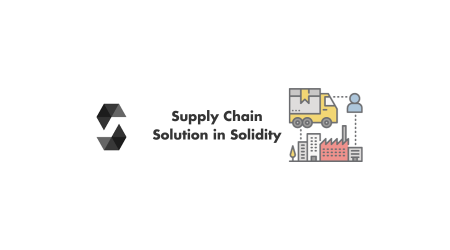Are you tired of struggling with your retail supply chain?
Do you want a solution that is secure, transparent, and efficient?
Look no further!
In this article, we will explore how to create a retail supply chain solution using Solidity, a cutting-edge technology.
With Solidity, you can revolutionize your supply chain, overcoming challenges and embracing future trends.
Get ready to embark on a journey of innovation and discover the key features and benefits of Solidity for your retail supply chains.
1. Key Takeaways
- Solidity is a programming language for smart contracts on Ethereum that offers advantages for retail supply chain solutions.
- Solidity enables real-time tracking and visibility of transactions and product movement, enhancing transparency and efficiency.
- The use of smart contracts automates processes, reducing manual errors and improving operational efficiency.
- Solidity and blockchain integration provide enhanced data security through robust encryption protocols and decentralized record-keeping, ensuring data privacy and reducing the risk of data breaches.
2. The Importance of Retail Supply Chain Solutions
You need to understand the importance of retail supply chain solutions to effectively manage your business operations. Implementing these solutions can offer numerous advantages, especially when leveraging blockchain technology.
By integrating blockchain into your retail supply chain, you can enhance transparency, traceability, and security. This, in turn, has a significant impact on the customer experience, as they can have confidence in the authenticity and quality of the products they purchase.
Now, let’s explore how solidity can further revolutionize retail supply chains.
3. Exploring Solidity as a Solution for Retail Supply Chains
Start exploring how Solidity can revolutionize the management of retail supply chains.
Solidity, a programming language specifically designed for smart contracts on the Ethereum blockchain, offers numerous advantages for retail supply chain solutions. However, it is important to acknowledge the limitations and integration challenges that come with Solidity.
These challenges include the need for specialized skills to develop and deploy smart contracts, potential vulnerabilities in the code, and the need for seamless integration with existing systems.
Despite these challenges, Solidity’s key features and benefits make it a promising solution for retail supply chains.
4. Key Features and Benefits of Solidity for Retail Supply Chains
When it comes to the efficiency of transparency in retail supply chains, Solidity offers a groundbreaking solution.
By utilizing blockchain technology, Solidity enables real-time tracking and visibility of every transaction and product movement, ensuring complete transparency for all stakeholders.
Additionally, Solidity enhances data security by leveraging decentralized networks, eliminating the risk of data manipulation or unauthorized access.
Furthermore, the automation of smart contracts in Solidity streamlines and accelerates the execution of complex supply chain processes, reducing human errors and improving overall operational efficiency.
I. Efficiency of Transparency
To enhance the efficiency of transparency in your retail supply chain solution, consider implementing smart contracts in your solidity code. Smart contracts provide numerous benefits that can revolutionize your supply chain management.
Here’s why they are a game-changer:
- Increased Transparency: Smart contracts enable real-time tracking of goods and transactions, providing a clear view of the entire supply chain process.
- Improved Efficiency: Automating processes through smart contracts reduces manual errors and streamlines operations, enhancing overall efficiency.
- Enhanced Data Privacy: With smart contracts, data is securely stored on the blockchain, ensuring privacy and eliminating the need for intermediaries.
By leveraging smart contracts in your solidity code, you can unlock a new level of transparency, efficiency, and data privacy in your retail supply chain solution. And this is just the beginning.
Let’s now delve into the next aspect of your solution: enhanced data security.
II. Enhanced Data Security
Implementing robust encryption protocols and multi-factor authentication can greatly enhance the data security of your retail supply chain system.
This ensures that sensitive information remains protected from unauthorized access. By prioritizing data privacy and integrating blockchain technology, you can establish a secure and transparent ecosystem for your supply chain.
Blockchain integration allows for immutable and decentralized record-keeping, reducing the risk of data breaches.
In the following section, we will explore the benefits of smart contract automation in streamlining your retail supply chain processes.
III. Smart Contract Automation
In order to ensure the smooth functioning of your retail supply chain solution, smart contract automation plays a crucial role. By incorporating smart contract governance and smart contract integration, you can streamline and automate various processes, resulting in increased efficiency and accuracy.
Here are three reasons why smart contract automation is essential for your supply chain solution:
- Reduced human error: Smart contracts eliminate the need for manual input, minimizing the risk of human error and ensuring accurate execution of tasks.
- Improved transparency: Smart contracts provide a transparent and immutable record of all transactions, enabling stakeholders to track and verify each step of the supply chain.
- Enhanced security: By utilizing cryptographic encryption, smart contracts offer robust security measures, protecting sensitive data and preventing unauthorized access.
With smart contract automation in place, you can now move on to implementing a secure and transparent supply chain solution in Solidity.
5. Implementing a Secure and Transparent Supply Chain Solution in Solidity
Creating a secure and transparent supply chain solution in Solidity requires careful planning and smart contract development.
By implementing blockchain technology, you can ensure traceability throughout the entire supply chain process. With a decentralized ledger, information is securely stored and cannot be altered, providing transparency and trust. To evoke an emotional response, consider the following table:
| Benefits | Emotions |
|---|---|
| Enhanced trust and transparency | Confidence and peace of mind |
| Improved efficiency and cost savings | Excitement and relief |
| Increased accountability and reduced fraud risk | Trust and reassurance |
| Enhanced customer experience and satisfaction | Delight and loyalty |
Now, let’s explore the challenges faced in developing a solidity-based retail supply chain solution.
6. Overcoming Challenges in Developing a Solidity-based Retail Supply Chain Solution
When developing a Solidity-based retail supply chain solution, there are several key points to consider.
Firstly, scalability solutions for retail are essential in order to handle the large volume of transactions that may occur within the supply chain.
Secondly, security challenges in Solidity must be addressed in order to ensure the integrity and confidentiality of the data being stored and transmitted.
Lastly, interoperability with existing systems is crucial to ensure seamless integration and efficient communication between different stakeholders in the supply chain ecosystem.
I. Scalability Solutions for Retail
There’s a need for scalability solutions in retail to handle increased demand. To address this, consider the following innovative approaches:
- Sharding: Break down the blockchain into smaller parts, allowing for parallel processing and increased transaction throughput.
- Off-chain solutions: Utilize off-chain networks or sidechains to reduce congestion on the main blockchain, enabling faster and cheaper transactions.
- State channels: Implement state channels to facilitate off-chain interactions, reducing the burden on the main blockchain while maintaining security and trust.
These scalability solutions, when integrated with blockchain technology, can revolutionize the retail industry, enabling seamless and efficient operations.
However, it is crucial to address the security challenges in solidity, ensuring the integrity and confidentiality of retail supply chain data.
II. Security Challenges in Solidity
To ensure the integrity and confidentiality of your retail data, it’s important to address the security challenges present in Solidity.
Solidity, as a programming language for smart contracts on the Ethereum platform, has its own unique set of vulnerabilities. Conducting a thorough vulnerability assessment is crucial to identify and mitigate potential security risks.
By analyzing the code and implementing robust security measures, you can protect your retail data and ensure a secure environment for your supply chain solution.
Speaking of security, let’s now discuss the interoperability with existing systems.
III. Interoperability With Existing Systems
Interoperability with existing systems can be achieved by implementing standardized protocols and APIs. To overcome the challenges of interoperability, consider the following integration strategies:
- Adopt a modular approach: Break down the existing systems into smaller components that can communicate with each other through standardized protocols.
- Implement API gateways: Use API gateways to bridge the gap between different systems, allowing them to exchange data seamlessly.
- Leverage middleware solutions: Introduce middleware solutions that provide a layer of abstraction and enable interoperability between disparate systems.
By implementing these strategies, you can ensure smooth integration of your solidity-based retail supply chain solution with existing systems.
Now, let’s explore future trends and innovations in solidity-based retail supply chains.
7. Future Trends and Innovations in Solidity-based Retail Supply Chains
You’ll be amazed at the future trends and innovations in Solidity-based retail supply chains. As the technology continues to advance, there are several exciting developments on the horizon.
One of the future challenges will be ensuring scalability and efficiency as the demand for blockchain solutions increases. However, the potential applications are vast.
From streamlining inventory management to enhancing transparency and trust in the supply chain, Solidity-based retail solutions have the power to revolutionize the industry.
| Future Challenges | Potential Applications |
|---|---|
| Scalability and efficiency | Streamlining inventory management |
| Enhancing transparency and trust in the supply chain | |
| Enabling real-time tracking of products | |
| Facilitating seamless payments and transactions | |
| Enabling secure and tamper-proof record keeping |




